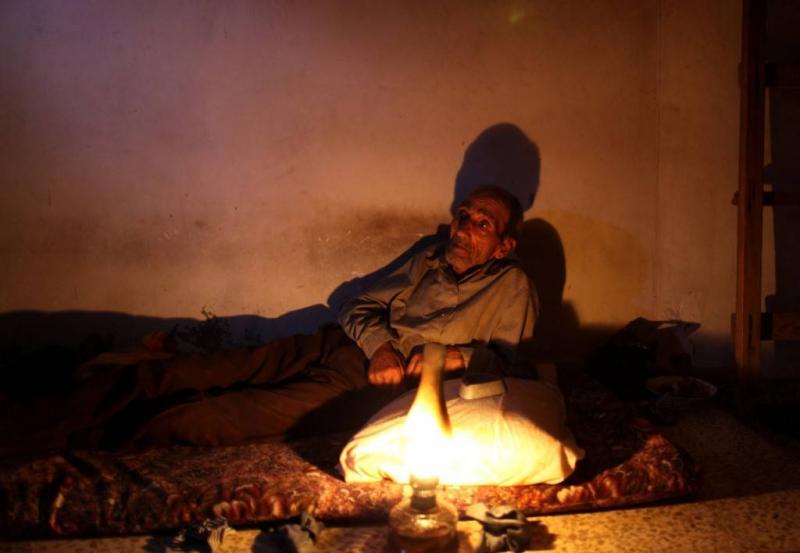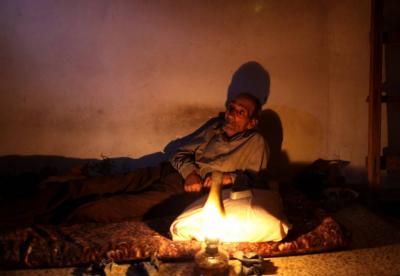For some patients suffering from respiratory issues, inhaling air has become a challenge during the heatwave and increasing power outages in the Gaza Strip. Ismail Nashwan (65 years old), who has pulmonary fibrosis, has been making frequent trips between his home and the hospital since temperatures soared above 38 degrees, unable to operate his home ventilator or even a fan. Nashwan stated, "The situation is very difficult, I need electricity, I need oxygen, I need a fan, I need someone to help me breathe." He added, "I go to the hospital, I come back from the hospital, and when the electricity goes out, I have to go back to the hospital again. My life is like this."
Over 2.3 million people live in a narrow strip of land between Egypt and Israel. Power cuts last at least 12 hours a day under the best conditions, with rising demand for air conditioning. The Islamic Resistance Movement (Hamas), which has governed the overcrowded territory since 2007, blames the Israeli blockade, imposed for 16 years along with restrictions from Egypt, for the destruction of Gaza's economy. Israel asserts that the blockade is vital to prevent arms from reaching Hamas.
Dr. Mohammed Al-Haj from the Al-Shuhada Hospital in Gaza indicated that the extreme heat and power cuts will mean treating more people with respiratory problems in July and August, the hottest months of the year. Al-Haj noted that "the unprecedented rise in temperatures and extended power outages have negatively impacted patients in general and respiratory patients specifically."
In addition to cases of newly acquired pulmonary fibrosis, health officials in Gaza report that over 300 people in the territory were born with cystic fibrosis, which causes blockages in the lungs and digestive system with sticky mucus. Among others, Abdul Majid Al-Sabakhi, who suffers from diabetes and cystic fibrosis, has been hospitalized due to the heat. He said, "I have cystic fibrosis and Type 1 diabetes, and because of the power outage, I cannot tolerate the heat, and I experience more symptoms and chest infections, so I spend most of my time in the hospital."




